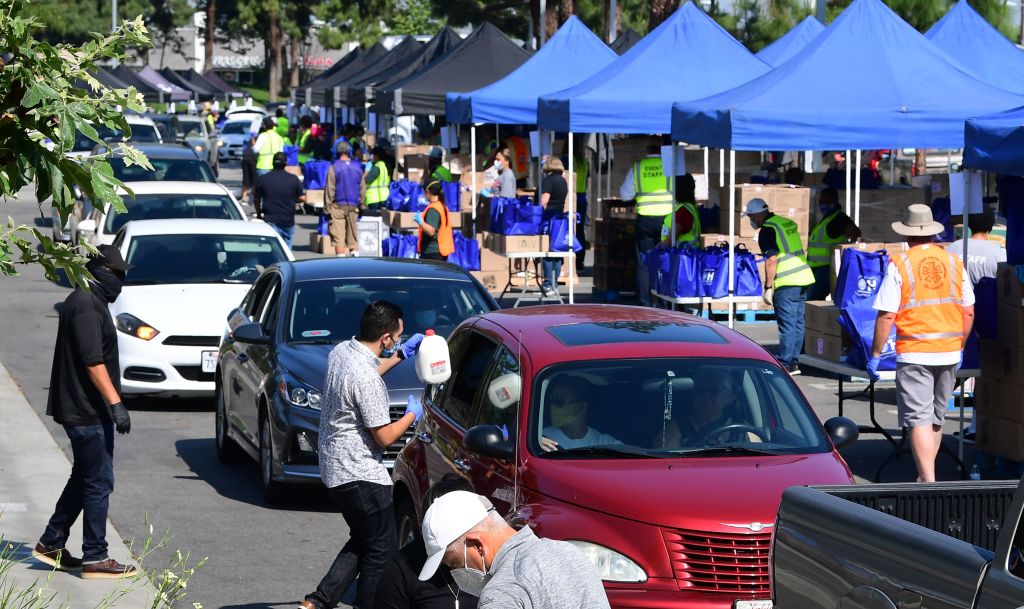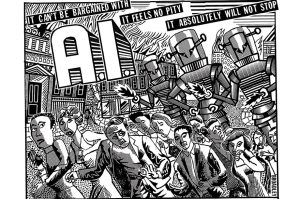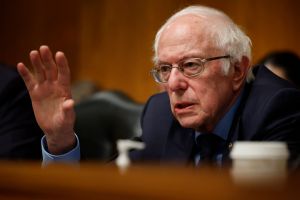The worst day of my childhood was in 1995 when my father lost his job. He worked close by as a cook in a local restaurant, just a mile or two from our modest home in Cranston, Rhode Island. I recall what it felt like when he broke the news: I felt my legs start to go under me. I still see him walking up the small hill that led to our home: his head down, his spirit crushed. I still see the look on his face, a man whose purpose had been taken away. My mother cried. We had to sell our house. Nothing would ever be the same.
I suspect many American families know what I’m talking about. Nearly 30 million have lost their jobs in just six weeks alone. Millions more will follow. Thanks to a series of stay-at-home orders across the US and countless forced business closures, the world’s most powerful economy has essentially been frozen. We will now find out what happens to a civilization driven by free movement and capitalism is choked. So far, it means as much as 40 percent or more of gross domestic product will disappear, and trillions added to the national debt.
We should not be angered by what now seems like a panic-based response. Our leaders wanted to save lives because of apocalyptic predictions of a corona-carnage. But now we can’t seem to find the off switch — to find a way from transitioning from a national emergency that largely never came, thank God, to what should be a state of hard-nosed crisis management.
History tells us we know as a society how to make such a transition. We transformed after the 9/11 attacks — we did not shut down the airlines forever, close our national monuments months on end or lock down every potential target that could be tempting to Osama bin Laden. We decided that as a society life must continue, that a new normal could be forged. We recognized that things must change, but even then, facing a new type of enemy, Americans would never dream of closing the nation. There was a natural recognition that we must adapt and include this new threat into our lives — not stop our lives. We did what humans do best as a species: adapt and prosper.
The coronavirus poses a very different and more incomprehensible threat. Politically, however, perhaps its greatest comes now. It takes real courage to open up an economy when people are dying, and courage seems in short supply.
Governors across the country, even if their coronavirus numbers are in decline or never really spiked at all, don’t seem to want to end stay-at-home orders or open their economy for fear that they will be blamed for what happens. They refuse to adapt to what is a new reality and so almost none of us can prosper. In fact, one headline suggests our nation’s capital might be closed for another three months — something that has never been done, even though we have faced far greater threats.
The reason why is obvious: any smart politician knows their re-election chances will be crushed if they are perceived to have opened up their state too soon; if they are accused of triggering another wave of infections. Their political opponents will scream ‘murderer’ and say that their policies are ‘killing people’. So, they make the safer political bet: stay in lockdown mode for a long as possible in order to save lives.
Poverty clearly kills too, though — think of the suicides, drug and alcohol addition, heart attacks and strokes, not to mention unthinkable damage to our collective quality of life. The economic violence that we are committing to our society does not have as quick an impact as the virus, but its harmful effects will be longer lasting and more profound.
Nobody wants to choose between human life and financial well-being, but at some point somebody has to. And, with another Great Depression looming, that moment has all but passed. The table is set for what can only be described as the worst economic disaster in American history, a disaster collectively that will cost far more lives than we can possibly imagine. All because no one has the guts to say what should be obvious: many Americans will die because of the coronavirus. If we try to save everyone no matter what the cost — due to a warped sense of political self-survival — millions more will suffer or die because of that choice. Are we all we so scared of being shamed or called insensitive that we can’t even state the obvious?
Sadly, I suspect our politicians have already made the wrong choice. We will all suffer the consequences.
Harry J. Kazianis is a senior director at the Center for the National Interest.


















